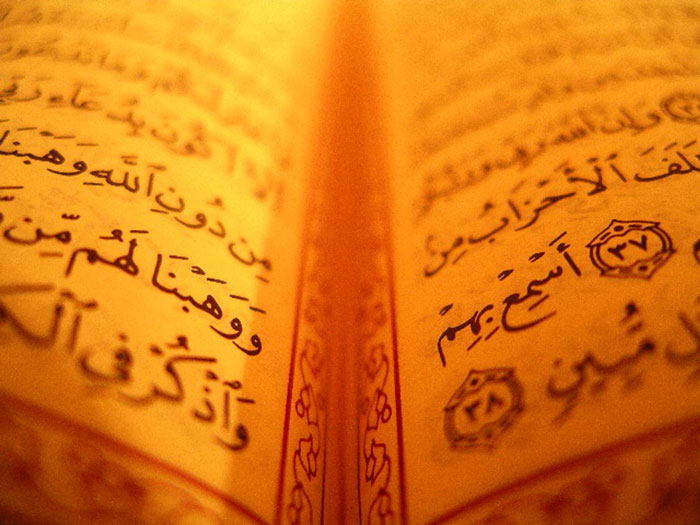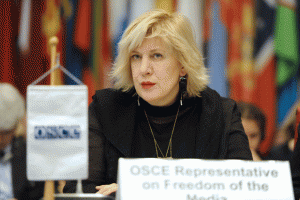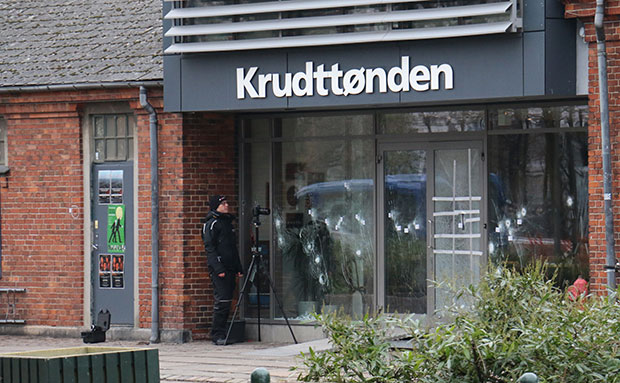10 Mar 2017 | Denmark, Digital Freedom, Europe and Central Asia, News and features
[vc_row][vc_column][vc_column_text] Few people take religion less seriously than the Danes.
Few people take religion less seriously than the Danes.
Only 19% consider religion to be an important factor in their day to day lives. While some 76% remain members of the state church, that figure is down from 83% in 2006, and more than 24,000 people left the institution last year. Church going remains popular at Christmas, weddings and baptisms, but many churches are almost empty on any given Sunday. Long gone are the days when criticising the doctrines of Lutheranism or the Lutheran state church would land you in prison (or on the scaffold). So it created quite a stir when in February a local prosecutor announced that a Danish man was being charged for violating Denmark’s blasphemy law, which has been dormant since 1971 and last resulted in a conviction in 1946. A move approved by Denmark’s chief prosecutor.
How was a dead letter such as the Danish blasphemy ban suddenly revived?
The first step was taken by the Danish Criminal Law Council, an expert body advising the Ministry of Justice. In 2015 it released a lengthy statement on the blasphemy ban arguing that the burning of holy books would still be punishable, despite the decades-long practice of emphasising the importance of free speech over religious feelings. However, suspiciously, the expert body omitted any reference to a case from 1997 in which a Danish artist burned the Bible on national television.
Back then a number of complaints from the public were dismissed by the chief prosecutor emphasising among other things the importance of freedom of expression. It is difficult to understand why this seemingly clear precedent was disregarded by the expert body. But it was this questionable interpretation that paved the way for bringing back from the dead a ban thought of as antiquated and incompatible with a secular liberal democracy by most Danes, and indeed by most Europeans, since only five EU-member states still have blasphemy bans on the books.
One of the reasons cited by the expert body for punishing the burning of holy books is the need to prevent religious extremists – at home and abroad – from instigating riots and violence as a result of having their religious feelings insulted. This is a deeply problematic argument in and of itself, but even more so in the context of Danish newspaper Jyllands-Posten having been the target of at least four foiled terrorist attacks since publishing cartoons of the prophet Muhammad in 2005, the murderous attack on Charlie Hebdo in 2015 and the killings of atheists and free thinkers in Bangladesh. A blasphemy ban indirectly legitimizes the Jihadist’s Veto, rather than confronting it. It is not punishable – nor should it be – to burn the Danish flag as has happened repeatedly in protests against the cartoons both in Denmark and abroad. No one would dream of arguing that it should be a crime to burn the Communist manifesto, Burke’s Reflection on the French Revolution, or Adam Smith’s The Wealth of Nations even though communists, conservatives and classical liberals might view these works as essential to their identities and deeply held beliefs. In all likelihood one of the most frequently burned book of the 20th century was Salman Rushdie’s Satanic Verses, which went up in flames all over the world as offended Muslims took to the streets. Offended Muslims were free to do so, while Rushdie had to spend years living underground.
While burning books is certainly a crude and primitive practice with deeply troublesome historical connotations, it is nonetheless a peaceful symbolic expression, that should be protected free speech, whether the content of the scorched paper is secular or religious. By solely protecting religious books against such desecration the Danish blasphemy ban not only violates free speech and equality before the law, it is also tantamount to victim blaming and a dereliction of duty on the part of a liberal society which in no uncertain terms should make clear to religious fundamentalists that they cannot hope to have democracies impose their religious red lines on the rest of society through threats, intimidation and violence.
This was a point made clear by both Norway and Iceland whose parliaments chose to abolish these countries’ respective blasphemy bans as a direct consequence of the attack against Charlie Hebdo.
It would be wrong however, to suggest that Denmark has succumbed to the will of Islamists in particular, rather than to a loss of faith in free speech in general. Last year Parliament adopted a bill prohibiting “religious teachings” that “expressly condone” certain punishable acts and allows the government to maintain a dynamic list of “hate preachers” barred from entering Denmark. These initiatives were the direct consequence of a documentary exposing radical imams in Danish mosques preaching that the punishment for adultery and apostasy is stoning. And the current government has also presented a bill that would criminalize the mere sharing of “terrorist propaganda” online and allow the police to block access to websites containing criminal material such as terrorist propaganda or racist content. These developments signal a marked shift in the Danish approach to free speech.
In the post-World War II era Denmark has with a few exceptions been a liberal democracy committed to the idea that freedom of expression was an essential tool in defeating extremism and totalitarian ideologies. But Denmark is turning towards a model of militant democracy where free speech is often seen as the problem rather than the solution, and as a hindrance rather than the foundation of social peace. The revival of the Danish blasphemy ban should therefore be seen in the wider context of a world where respect for freedom of expression is at its lowest level in 12 years, a development that has now affected even one of the global bastions and beacons of free speech.
Jacob Mchangama is director of Justicia, a Copenhagen think tank focusing on human rights and the rule of law[/vc_column_text][vc_basic_grid post_type=”post” max_items=”4″ element_width=”6″ grid_id=”vc_gid:1489139072253-6b7daeee-fe12-8″ taxonomies=”53″][/vc_column][/vc_row]
1 Oct 2015 | European Union, mobile, News and features

Dunja Mijatovic is the OSCE Representative on Freedom of the Media. (Photo: OSCE/Micky Kroell)
Each autumn, more than 1,000 government and civil society representatives from 57 countries of the OSCE get together in Warsaw for a two-week discussion on a wide variety of human rights issues. The purpose of the meeting is to scrutinize each country’s performance on human rights standards they signed up to in areas such as free expression, free media and the panoply of basic rights prevalent in modern, liberal societies. It is designed to be a thoughtful and lively event that gets to the heart of implementing states’ commitments on the issues.
This year the first topic was dedicated to freedom of expression and the keynote speaker, Danish human rights lawyer Jacob Mchangama, raised “the issue du jour”: “Does a genuine commitment to tolerance, equality and nondiscrimination really depend on restricting the very freedom that has made possible the articulation and spread of new and progressive ideas from religious toleration in 17th century Europe, the abolishment of slavery, the equality of the sexes, criticism of apartheid and the rights of LGBT people?”
The issue, of course, is whether we need the spate of new laws enacted worldwide designed to somehow strike a balance between the right of free expression and the desire to weed out intolerance and hate in society.
In the wake of the Charlie Hebdo massacre in January, the answer to Mchangama’s question may well form the superstructure of the rights to free speech in the years to come.
We don’t need new laws. Indeed, it is time we stop looking at unbridled speech as something that promotes intolerance. We should see it as an opportunity to protect the rights of minorities and marginalised people to speak when the powerful are making distressing noises.
My reasoning is based on the simple view that when it comes to media freedom, those who govern least, govern best.
Even the best-intentioned laws cannot prevent intolerant speech. And general notions such as “hate speech” preferably should be avoided because they can be arbitrarily interpreted.
It is a decidedly New Age thought, likely first made popular by the 19th century essayist Henry David Thoreau in his essay on Civil Disobedience.
But today it is commonly thought that laws criminalising hate speech are beneficial to marginalized groups that need state protection. In reality, it is the marginalized groups who need the freedom of speak without fear of prosecution to press their causes and affirm their rights in society.
As Mchangama said in his address: “The freedoms that (sometimes) allow bigots to bait minorities are also the very freedoms that allow Muslims and Jews to practice their faiths freely. By further eroding these freedoms, no one is more than a political majority away from being the target rather than the beneficiary of laws against hatred and offence.”
Indeed, a significant development post-Charlie Hebdo has been the distressing comments by some that openly suggested the magazine’s staff “had it coming to them” for publishing illustrations satirising the prophet Muhammad. Just think of it: the victims of an outrageous act of silencing speech actually became, in some people’s eyes, the guilty ones.
It is time for some civility in the chaotic world of free speech. As I wrote shortly after the attack: “Intolerant speech should be primarily fought with more speech.” I still believe that is the foundation of any attempts to regulate content.
Following that line, I suggested, among other things, that participating states (the member countries of the Organization for Security and Co-operation in Europe):
· Refrain from banning any form of public discussion or critical speech, no matter what it refers to;
· Take all possible measures to fight all forms of pressure, harassment or violence aimed at preventing opinions and ideas from being expressed or disseminated; and
· Eliminate restrictions to freedom of expression on the exclusive grounds of hatred, intolerance or potential offensiveness. Legislation should only focus on speech with can be directly connected to violent actions, harassment or other forms of unacceptable behavior against communities or certain parts of society.
My full statement on this issue.
16 Feb 2015 | Denmark, News and features

Site of the 14th February 2015 terrorist attack on a debate discussing blasphemy and artistic expression at Krudttønden in Copenhagen, Denmark. (Photo: Benno Hansen / Flickr)
While Saturday’s deadly attack in Copenhagen has many similarities to the one on French satirical magazine Charlie Hebdo, one aspect sets it apart and marks a dangerous evolution in the assassin’s veto.
The attack on Charlie Hebdo targeted the magazine and its editors and journalists. So was the attack against Danish cartoonist Kurt Westergaard who in 2010 escaped an axe wielding Islamist by fleeing into a panic room. Other foiled attacks against Danish newspaper Jyllands-Posten have been spectacular — one involved decapitating all journalists present and throwing their severed heads onto the street below — but also “limited” to the perceived offenders.
But when 22 year old Omar Abdel Hamid El-Hussein opened fire on café Krudttønden (in an area of Copenhagen where I was born and raised) he was attacking not only controversial Swedish cartoonist Lars Vilks. He was in fact targeting all the participants at a debate on free speech and Islam. Neither the film director who was killed nor any other participants (apart from Vilks) had anything to do with the cartoon of the Prophet Mohammed drawn by Vilks. For all we know some of the participants may have been offended by the cartoon and other material mocking Islam and would have expressed such feelings had they been given the chance.
That is after all the whole purpose of debate — differing viewpoints meeting and testing and probing each other’s strengths and weaknesses and thereby enlightening the public at large. By attacking such a public debate Abdel Hamid El Hussein and his enablers sent out a most disturbing message: to earn a death sentence for offending Islam, it is no longer necessary to actually make “offensive” expressions. Participating in a public debate on free speech and Islam will suffice.
That message is likely to have profound consequences for public debate on the very issues that are now more important for free societies to discuss than ever. For who can be expected to stage a debate on Islam and free speech, when it involves risking your life? Who would want to be part of the next panel involving Flemming Rose or Salman Rushdie, and who would be willing to act like sitting ducks in the audience? The few people brave enough to actually cross the red lines of the assassin’s veto will then have to think of the considerable costs involved in providing adequate security, and those participants willing to attend would then have to pay through the nose to risk their own lives.
One can only hope that these pernicious effects of the Copenhagen attack will cause what Salman Rushdie has labelled the “but-brigade” to reconsider the half baked defense of free speech that has become so characteristic since the Danish cartoon affair unleashed a global battle of values between free speech and religion. It should be clear that a free society cannot accommodate with special protection feelings of insult and offense that encompass the mere staging of a public debate on subjects of religion and politics. One also hopes that the victims of the Copenhagen shooting will be spared the shameful accusations of “racism” and “islamophobia” that were soon charged at Charlie Hebdo after the attack in Paris.
Despite the grim realities that confront free speech in contemporary Europe, I’m afraid that we must summon our courage and insist that no topics are off the table in public discourse and that murderers cannot be allowed to decide when, where and what we choose to discuss. The responsibility for crossing those red lines falls heavily on those of us who like to think of ourselves as the guardians of free speech.
Living in liberal democracies most of us will not have had much reason to fear for our safety as part of our free speech advocacy. But if we are serious about defending the right to offend, those of us heeding that call will have to stick our necks out too and get up on the podium next to the Flemming Roses, Salman Rushdies and Yahya Hassans of the world, armed with nothing more than the courage of our convictions.
Related:
Jodie Ginsberg: The right to free speech means nothing without the right to offend
Index on Censorship statement on blasphemy debate attack in Copenhagen
This guest post was published on 16 February 2015 at indexoncensorship.org
 Few people take religion less seriously than the Danes.
Few people take religion less seriously than the Danes.

